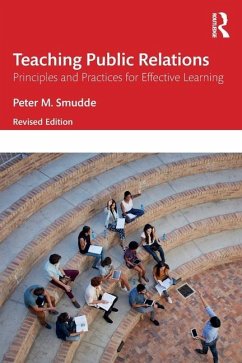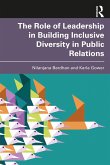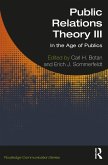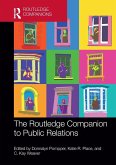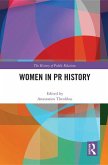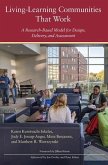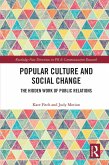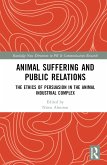Excellence in public relations (PR) begins with excellence in education in public relations programs. In this book, Dr. Smudde brings together his industry expertise and over 20 years of teaching experience at higher education institutions to present a comprehensive and cohesive primer for PR educators.
Newly updated to reflect five years of developments in the field of public relations since its initial publication in 2019, this revised edition of Teaching Public Relations puts in one concise volume salient matters about effective teaching and learning of public relations. It includes curriculum development and course design plus guides and tools for the work PR educators must do. This book remains the first textbook of its kind and systematically synthesizes current principles and practices for effective teaching and learning and applies them to PR education in colleges and universities. This book, however, is not a book of tips for teaching PR, although some are given at times when relevant. Firmly situating public relations education (PRE) in context, the book goes on to outline principles and approaches for teaching and learning in PRE. Other features of the text include example documents that will help in designing assignments, courses, or curricula, and a comprehensive list of publications, organizations, online media, and other sources for further investigation and learning.
This book is a solid starting point for anyone, especially public relations professionals, considering a career as a full-time or part-time professor of PR at a college or university. It is also recommended reading for current teachers and students of PR research.
Newly updated to reflect five years of developments in the field of public relations since its initial publication in 2019, this revised edition of Teaching Public Relations puts in one concise volume salient matters about effective teaching and learning of public relations. It includes curriculum development and course design plus guides and tools for the work PR educators must do. This book remains the first textbook of its kind and systematically synthesizes current principles and practices for effective teaching and learning and applies them to PR education in colleges and universities. This book, however, is not a book of tips for teaching PR, although some are given at times when relevant. Firmly situating public relations education (PRE) in context, the book goes on to outline principles and approaches for teaching and learning in PRE. Other features of the text include example documents that will help in designing assignments, courses, or curricula, and a comprehensive list of publications, organizations, online media, and other sources for further investigation and learning.
This book is a solid starting point for anyone, especially public relations professionals, considering a career as a full-time or part-time professor of PR at a college or university. It is also recommended reading for current teachers and students of PR research.

